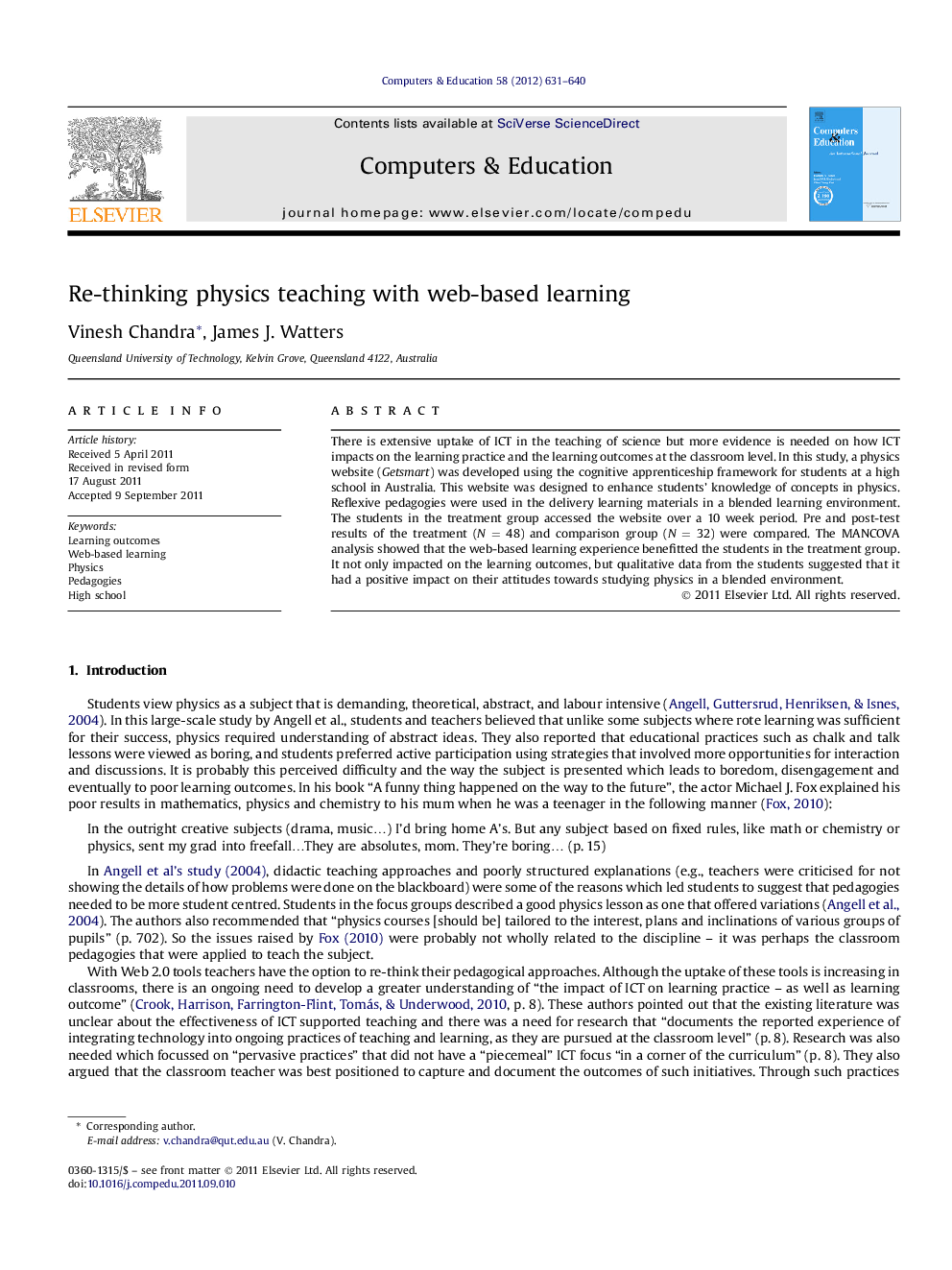| Article ID | Journal | Published Year | Pages | File Type |
|---|---|---|---|---|
| 349018 | Computers & Education | 2012 | 10 Pages |
There is extensive uptake of ICT in the teaching of science but more evidence is needed on how ICT impacts on the learning practice and the learning outcomes at the classroom level. In this study, a physics website (Getsmart) was developed using the cognitive apprenticeship framework for students at a high school in Australia. This website was designed to enhance students’ knowledge of concepts in physics. Reflexive pedagogies were used in the delivery learning materials in a blended learning environment. The students in the treatment group accessed the website over a 10 week period. Pre and post-test results of the treatment (N = 48) and comparison group (N = 32) were compared. The MANCOVA analysis showed that the web-based learning experience benefitted the students in the treatment group. It not only impacted on the learning outcomes, but qualitative data from the students suggested that it had a positive impact on their attitudes towards studying physics in a blended environment.
► In this study we investigated the impact of web-based learning on students’ learning outcomes in high school physics classes. ► Test scores were compared of the students in the treatment and comparisons groups. ► A MANCOVA analysis was carried out for this purpose. ► The analysis showed that web-based learning impacted on students learning outcomes in two of the three dimensions. ► This was supported by the qualitative data gathered from the students.
